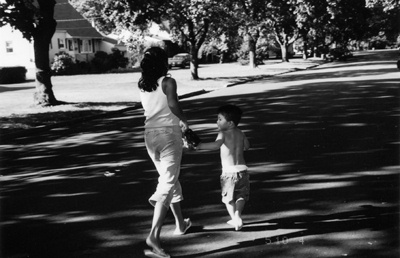All Nonfiction
- Bullying
- Books
- Academic
- Author Interviews
- Celebrity interviews
- College Articles
- College Essays
- Educator of the Year
- Heroes
- Interviews
- Memoir
- Personal Experience
- Sports
- Travel & Culture
All Opinions
- Bullying
- Current Events / Politics
- Discrimination
- Drugs / Alcohol / Smoking
- Entertainment / Celebrities
- Environment
- Love / Relationships
- Movies / Music / TV
- Pop Culture / Trends
- School / College
- Social Issues / Civics
- Spirituality / Religion
- Sports / Hobbies
All Hot Topics
- Bullying
- Community Service
- Environment
- Health
- Letters to the Editor
- Pride & Prejudice
- What Matters
- Back
Summer Guide
- Program Links
- Program Reviews
- Back
College Guide
- College Links
- College Reviews
- College Essays
- College Articles
- Back
Parents Should Not Spoil Their Children
I was shopping in a mall with my mother when we witnessed quite a scene. There was a very young girl - around five years old - screaming into her mother’s ears as she slapped the ice cream out of her mother’s hand.
“Spoiled,” my mother whispered to me. “I would never raise my children to be like that.”
I didn’t and still don’t understand why the little girl didn’t appreciate the time and money her mother wasted on her. Not only did she not appreciate it, but she also wasted a perfectly good ice cream that could’ve made somebody else’s day. I despise spoiled kids. They go whining to their parents about every tiny thing, and they always think they’re so much better than others. Just imagine a whole world of spoiled kids running around and whining for money pops one word into my mind. Ew. The world is practically going to end if we all want unlimited supply of things we desire.
Though when kids have this sort of behavioural problem, the parents may be the ones building it up. In a recent article entitled “Raising spoiled kids? How to set limits” on CNN Kelly Wallace refers to Laura Simms who says “‘I feel like my children are never satisfied and happy with what they have, so that’s really, I think, that’s my issue’” (Wallace). Parents are developing this overwhelming feeling of love that lifts their child up while they get used to looking down on others. This results to a child who just automatically thinks he or she is better than everyone else. This negative attitude, fills me with so much hatred. Especially when those kids look at you with disrespect in their eyes.
This is a serious problem that is causing children to expect to get what they want. For this particular issue Valerie Frankel expresses some ways to raise a child who’s thankful, “Since food is symbolic of plenty and well-being, this is also the time to encourage your child to give thanks for what he has…. What’s important is that you help him appreciate the many people who helped put that food on the table” (Frankel). It is essential for every kid to learn the words “thank you” to teach them the importance of showing your gratitude. Though it may sound like a word we say every day, but for some children it feels like we’re begging on our knees for them to even utter the word. It’s not that hard.
Boston Magazine featured a parenting article that illustrates parents encouraging their children. The parents were making a contract with their kids by paying them when they make a point in a sports game (Suratt). This method can motivate and push children to their full extent. Though it is good to reward them for something they have done well, it can easily backfire and the kids will get used to being praised or rewarded for everything they do. They will then result in coming to their parents for some reward every single time. It has started to become a habit that they can’t let go of. By being bribed and getting what they want, this will develop a narcissistic and selfish trait that will cause them to whine for more. Whining is ridiculously annoying, and in the end does not benefit anyone. Instead, it results in a false sense of happiness made of candy and money.
Parents should take the responsibility in educating their children to establish a thankful and appreciative attitude. Jeffrey Froh, an assistant professor of psychology at Hofstra University, describes that “‘They [grateful kids] report better relationships with friends and family, higher GPAs, less materialism, less envy and less depression, along with a desire to connect to their community and to want to give back’” (Butler). These traits build up a much happier and thoughtful kid, so why not? In the end, we all want children to grow up to make a change in the world. They will not be able to do this if they expect rewards and no failure. For that is not the way life it. Raising a spoiled child, just causes bad social relationships, crushing their desire to learn and share, and crumbling true joy. Instead, teaching your child empathy, and compassion, will result in a child who is truly happy and ready for the real world for when the time comes.

Similar Articles
JOIN THE DISCUSSION
This article has 0 comments.
